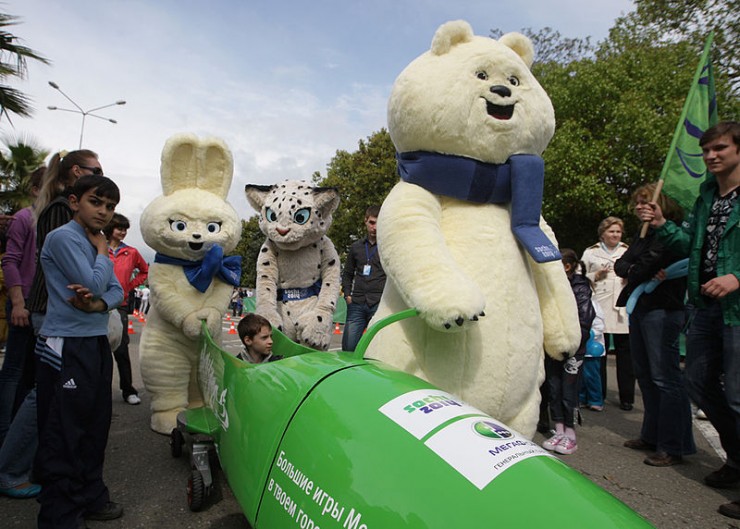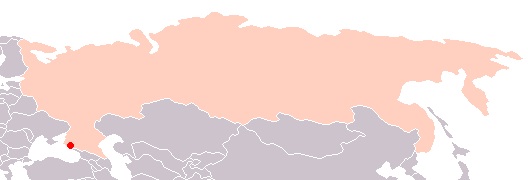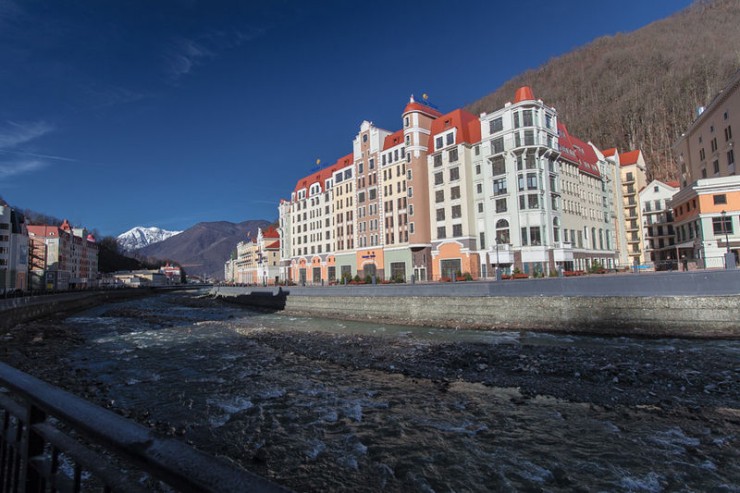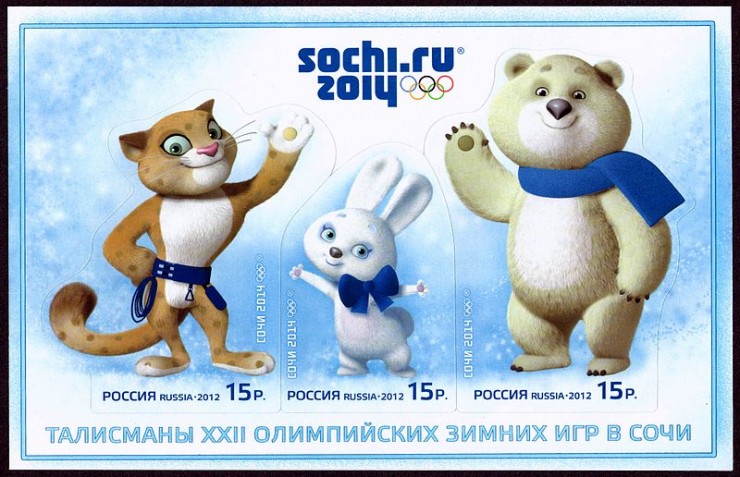
We’re at the 199-days-and-counting mark if you’re keeping track of how much time remains until the start of the 2014 Winter Olympics in Sochi, Russia, and we know many of you are. In case you haven’t been reading every ounce of pre-Olympic coverage, we’ll do our best to stay on it and provide relevant nordic updates throughout the next sixth months.
For now, here’s some noteworthy starter information:
1. Opening ceremony: The 22nd Winter Olympic Games will kick off Friday, Feb. 7, in Sochi, Russia. Closing ceremony 16 days later on Sunday, Feb. 23.

2. Where: Sochi, which spans some 145 kilometers (90 miles) with a population around 345,000 along the shores of the Black Sea in western Russia.
Krasnaya Polyana, an urban mountain town about an hour drive (70 kilometers) inland from Sochi, is where all the snow-sport events will be held (i.e. cross-country skiing, biathlon, alpine, freestyle, snowboarding). In 2010, it had a population of about 4,500, but expect a lot more people buzzing around in February.
3. Climate: Categorized as humid subtropical, Sochi typically experiences mild winters averaging 11 degrees Celsius (52 Fahrenheit) during the day and 4 degrees Celsius (39 degrees Fahrenheit) at night from December to March. What could that mean for snow sports? Another potentially tricky year, just like in 2010 in Vancouver, British Columbia, and 1998 in Nagano, Japan. In both previous Olympics, weather postponed events, but everything eventually took place. According to Philip Hersh of the Chicago Tribune, the Russians are stockpiling snow.

4. Money: Hersh posed the question as why a palm-tree-laden, authoritarian nation would be awarded the Winter Games. Because of “Russian supremo [president] Vladimir Putin,” he wrote, who promised an unlimited budget and has already overspent it. Last February, a year from the Olympics, Russia had spent $51 billion dollars, $11 billion more than China’s previous record-setting grand total for the 2008 Summer Games.
Some $130 million dollars alone was set aside for a road connecting Krasnaya Polyana to Sochi, and according to the Christian Science Monitor, that makes it the world’s most expensive byway. “That’s about 50 times the average cost of a highway in the United States,” former deputy prime minister Boris Nemtsov told the Monitor.
5. A first: Neither Russia nor the former Soviet Union ever hosted the Winter Olympics, although it’s long been considered a winter-sports stronghold. Who could forget then-president Dmitry Medvedev’s televised remarks four years ago, after Russia’s showing at the Vancouver Games. “Those responsible should take the brave decision and sign a letter [of resignation]. If they can’t, we will help them,” he said of the Russian officials and sports bureaucrats blamed for a lack of medals and disappointing sixth-place finish in men’s hockey.
6. A dozen new events: Stay tuned for the brand-new biathlon mixed relay, women’s ski jumping, luge team relay, figure skating team event, men’s and women’s halfpipe and slopestyle freestyle skiing, and men’s and women’s slopestyle and parallel slalom snowboarding.
7. How to watch: According to the Tribune, prime-time coverage on NBC will be delayed, but more than half the Olympic events will be live on some NBC network, and every event will be streamed live.
8. Boycotts: Remember Beijing and the civil-rights movements surrounding the Games? Same sort of thing here, except Russia isn’t just ignoring protesters, it’s threatening them to stay away. Putin recently signed a law allowing police officers to arrest tourists and foreigners they suspect of being homosexual, lesbian or “pro-gay,” the New York Times reported. What? Yep, if this stands, those arrested could be detained for up to 14 days – that includes Olympic athletes, coaches, trainers, family members, fans and spectators. Earlier in June, Putin signed another bill classifying “homosexual propaganda” as pornography, which essentially means that anyone who condones homosexuality to someone underage could face fines or jail time.
The International Olympic Committee (IOC) responded with a statement that read, “The IOC would like to reiterate our long commitment to non-discrimination against those taking part in the Olympic Games, the IOC is an open organization and athletes of all orientations will be welcome at the Games.”
A leading international organization, Human Rights Watch (HRW) wrote a letter to the IOC urging it “to take additional steps to send a clear signal to the Russian authorities that discrimination of people based on their sexual orientation and gender identity is at sharply at odds with Russia’s human rights and Olympic commitments.”
HRW also encouraged the IOC to get a guarantee that Russian authorities will not adopt or implement homophobic legislation.
“We also urge you to press the authorities to state publicly that, as Olympic Host, Russia will ensure, without distinction, the safety and the freedom of expression and association of all athletes, coaches, fans, and others who will attend the Sochi Games.”
9. No laundry: Don’t hang it from balconies or use window air conditioners, because Sochi doesn’t want to see it. Residents could face fines up to $46 dollars, The Moscow Times reported, for clothes on the line or air conditioners that look “chaotic.”
The city “should look especially decent in a zone of international hospitality,” Sochi’s deputy mayor Yevgeny Gorlov wrote on the local government’s website last week. “If people have made the decision to install an air conditioner, they should have a symmetrical location on the building and be agreed upon with all the [other] owners … in an agreed scheme.” This is in effect for the preparatory period before the Games, but it brings up a previous concern: are people going to need air conditioners at the Winter Olympics? (See No. 3).
10. A polar bear, a European hare and an Amur leopard: These are the three official mascots of the Games, decided by a public vote (another first for Russia, according to the Sochi 2014 organizing committee).

11. “Hot. Cool. Yours.” The official Olympic slogan. Organizing Committee President and CEO Dmitry Chernyshenko said in a statement it’s aimed to bring more foreigners to Sochi and make Russians proud.
“The Sochi 2014 slogan says it’s impossible not to take part, impossible not to watch, impossible not to get excited and it’s worth being proud because these are our Games,” Chernyshenko said.
“Hot” and “cool” are references to Sochi’s sun-and-snow climate and symbolize progressive movement forward.
Alex Kochon
Alex Kochon (alexkochon@gmail.com) is a former FasterSkier editor and roving reporter who never really lost touch with the nordic scene. A freelance writer, editor, and outdoor-loving mom of two, she lives in northeastern New York and enjoys adventuring in the Adirondacks. She shares her passion for sports and recreation as the co-founder of "Ride On! Mountain Bike Trail Guide" and a sales and content contributor at Curated.com. When she's not skiing or chasing her kids around, Alex assists authors as a production and marketing coordinator for iPub Global Connection.



